Photographs: Reuters.
The new government will be closely watched for its approach towards the multi-pronged hit from the poor monsoon, says Rajeev Malik.
The world will know the contours of the new Indian government in less than a fortnight.
The trends are reasonably clear, but India’s elections are notorious for unexpected googlies. In an earlier article in this newspaper (“Hurry slowly”, April 1), I had emphasised that the prospective prime minister should learn from the mistakes of the current government and give greater importance to easing the stubbornly high retail inflation to a low and stable level.
That, in turn, will be a necessary condition for a sustained upturn in economic growth.
In this article I would like to focus on the more immediate challenge of the anticipated fallout of the poor monsoon season rainfall.
In its first monsoon forecast – typically announced in late April – the India Meteorological Department (IMD) has attached a probability of 33 per cent to the occurrence of a below-normal monsoon (and a probability of 56 per cent for a deficient monsoon).
...
New govt must consider economic perils of poor monsoon
Image: Lightning strikes.Photographs: Gene Blevins/Reuters
Frankly, while the IMD joins weather offices from other countries in raising the risk of El Nino, the influential weather pattern in the South Pacific, it is still cautious in its guidance.
Most likely, its update in June will raise the probability of a deficient monsoon this year. Note that for India, El Nino years are not necessarily drought years, but most drought years are typically also El Nino years.
Dealing with the fallout of the sub-normal monsoon will be the first major challenge for the new government, irrespective of its composition.
...
New govt must consider economic perils of poor monsoon
Image: A farmer with his oxen on a paddy field at Kakkoor village in Kerala.Photographs: Sivaram V/Reuters
Admittedly, it is still too early to tell exactly how the monsoon rainfall will pan out; but there is no reason for the incoming government to wait to act until the revised forecast by the IMD.
It would be better off crafting a timely contingency plan. It will also be an opportunity to win brownie points by showing an effective, and hopefully successful, strategy for dealing with the likely hit from a poor monsoon.
The macro challenges arising from a poor monsoon should be assessed through the impact of such rainfall on three main parameters, even though it is too early to quantify such an impact.
First, economic growth will be temporarily pulled down because of a poor agriculture harvest. But the focus on headline gross domestic product (GDP) growth ignores the more important outcome for non-agriculture GDP growth. This, in my view, will be much less affected.
In fact, it may not even be hit at all if the monsoon is not too bad in its spatial and temporal distribution.
Click NEXT for more...
New govt must consider economic perils of poor monsoon
Image: Labourers sift harvested wheat in a field on the outskirts of Ahmedabad.Photographs: Amit Dave/Reuters
As the accompanying graph shows, agriculture GDP growth and non-agriculture GDP growth have not moved hand in hand.
This is because India has become incrementally less dependent on agriculture — though the rainfall profile can still influence rural demand. For example, non-agriculture GDP growth accelerated in 2002-03, despite a severe drought in that year that caused agricultural output to contract by a whopping 6.6 per cent.
Conversely, non-agriculture GDP growth decelerated in 2010-11, though agricultural output jumped by 8.6 per cent.
It is important to bear in mind that since the global financial crisis of 2008, poor agricultural performance has coincided with the investment-led slowdown that was unrelated to the monsoon rainfall.
Click NEXT for more...
New govt must consider economic perils of poor monsoon
Image: Agricultural production could be hit because of poor rainfall.Photographs: Reuters
The economic backdrop is also different this time. This is because of the nature of India’s recent idiosyncratic growth deceleration resulting from domestic policy mishaps.
This positions the economy differently from earlier years when the monsoon was insufficient.
There are already some tentative signs of growth bottoming and some improvement in activity. These are likely to gain more traction to result in an uneven and protracted recovery.
Thus, while agricultural production will be hit because of poor rainfall, non-agriculture GDP growth will be more resilient.
Equally importantly, a poor monsoon this year won’t eliminate the possibility of a slight upward revision to the consensus GDP growth forecast for 2015-16, if the election result is favourable.
Click NEXT for more...
New govt must consider economic perils of poor monsoon
Image: Higher food inflation could lead to second-round price pass-through.Photographs: Cheryl Ravelo/Reuters
Second, food inflation, which is already uncomfortably high, could head higher.
Coupled with recovery in an economy suffering from chronic supply constraints, higher food inflation could lead to second-round price pass-through.
This, in turn, could make the inflation fight more challenging.
The above inflation risk won’t escape the central bank’s attention.
Expectations of monetary easing by the Reserve Bank of India (RBI) this year are wishful thinking, in my humble opinion.
Frankly, there is high risk that it will raise policy rates again, perhaps in late July-September quarter, after the full Budget for 2014-15 is announced.
...
New govt must consider economic perils of poor monsoon
Image: One cannot ignore consequences that monsoon deficit can lead to.Photographs: Parth Sanyal/Reuters
Measures such as imports of key food items, domestic storage and distribution, and checks on price gauging should be effective in checking the possible rise in food inflation.
But don’t be seduced by the possibility of a temporary fall in inflation later this year because of a favourable base effect. The sequential pace could be pushed up and will be a sufficient cause for worry.
Third, the impact of a poor monsoon on fiscal dynamics shouldn’t be ignored. The full 2014-15 Budget (delayed because of the general election) by the new government will, most likely, be announced in July.
In any case, the new government has to redo the fiscal arithmetic of the interim Budget announced in February. Also, there will be pretty firm conclusion by July about the monsoon and its distribution.
Thus, the new government could be politically opportunistic because of bad monsoon and thus announce a Budget that is less contractionary than it needs to be.
...
New govt must consider economic perils of poor monsoon
Image: The new government is expected to take up reforms for the agriculture sector.Photographs: Reuters
Such an approach would be a missed opportunity from the perspective of macro management.
The new political regime shouldn’t deviate from announcing and sticking to a credible path for sustained fiscal correction, despite the increased pressure for sops from industry and its lobby groups.
It shouldn’t forget that the RBI is still disinflating the economy.
Being fiscally disciplined doesn’t mean the government shouldn’t do anything for the farm sector to cushion the hit from the weak monsoon.
But whatever measures are adopted, they should be within the limits of a credible road map for adequate and sustained good-quality fiscal correction. No sleight of hand, please.
Click NEXT for more...
New govt must consider economic perils of poor monsoon
Image: Monsson deficit, if any, will impact agricultural produce.Photographs: Reuters
Indian politicians will say anything to get elected. That is why all the manifestos in this general election essentially promise the moon.
Frankly, we should be happy if the new government can deliver even a third of what has been promised.
In the very near term, its approach of dealing with the poor monsoon season rainfall, food supply management and the fiscal mess will be closely watched.
This could offer early clues about the new government’s approach and implementation. Hopefully, it won’t be an all-talk-but-little-action approach


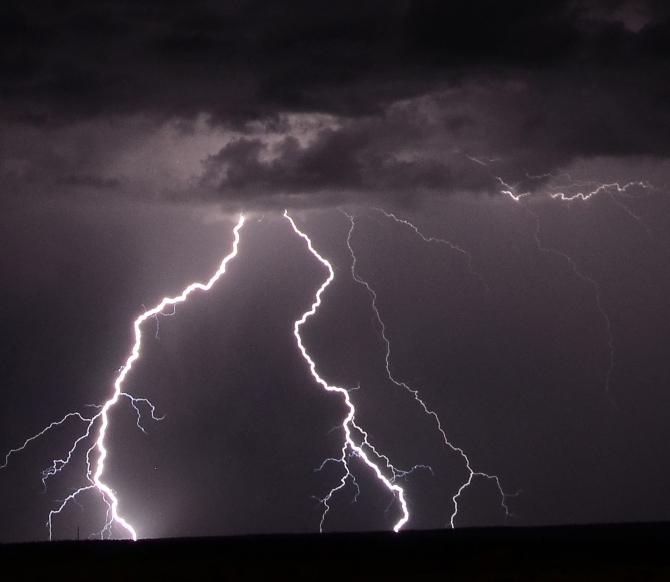
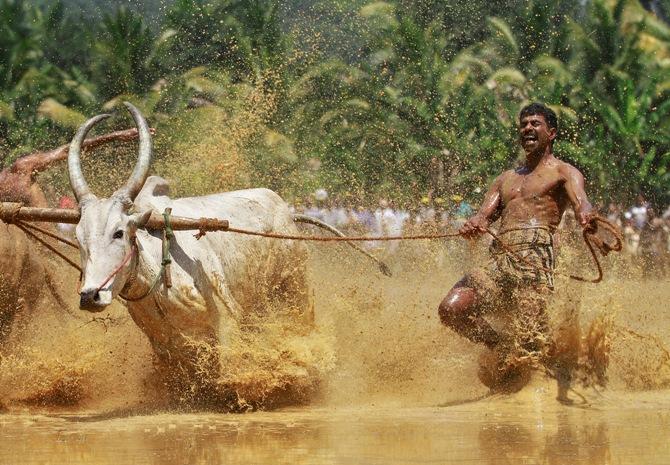
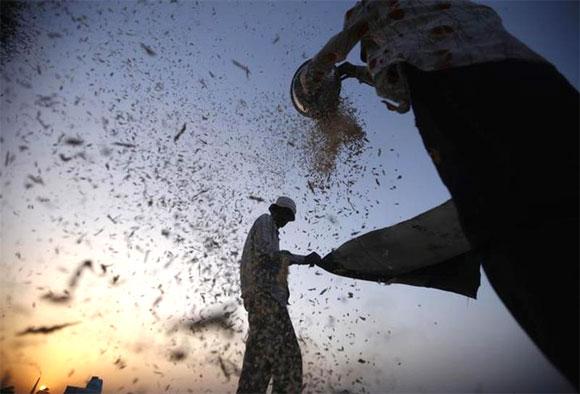
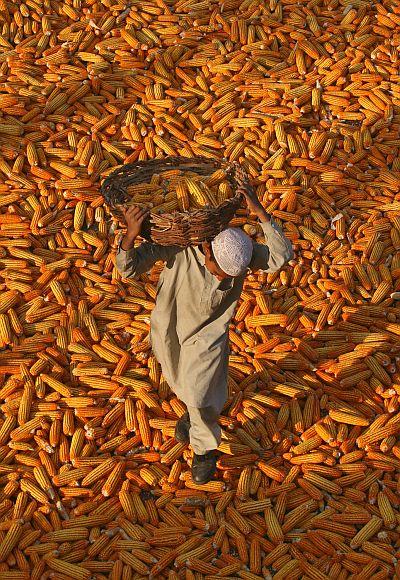
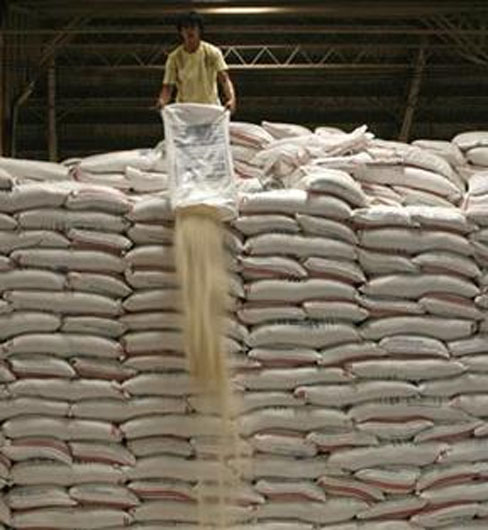
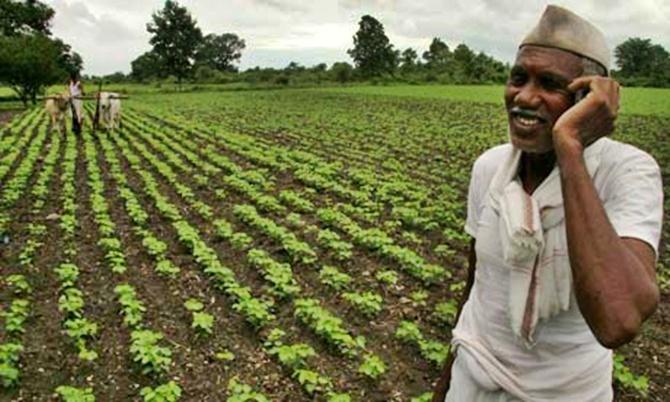
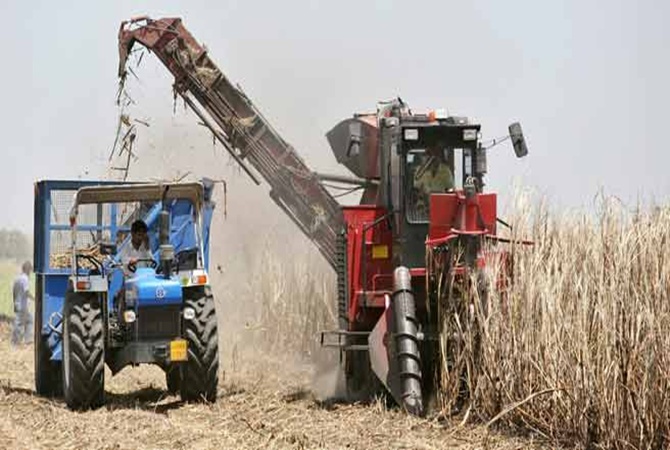
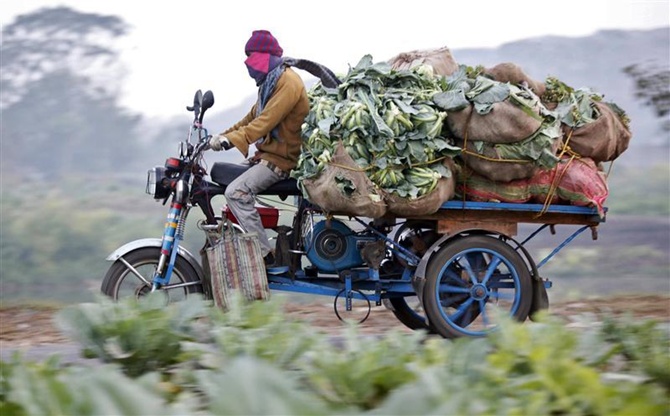

article